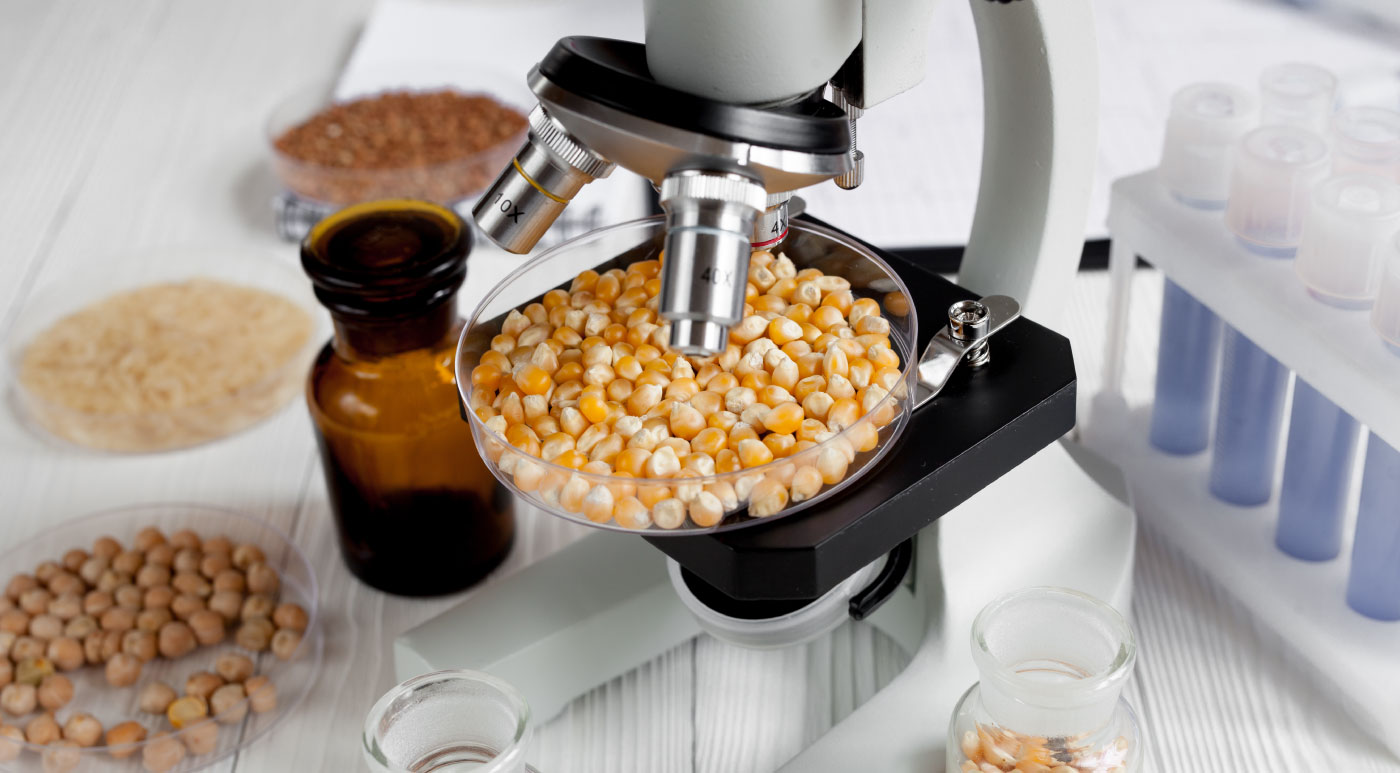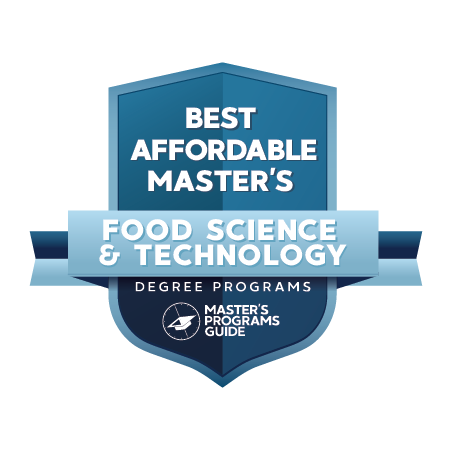Ready to find your ideal master's program?
www.mastersprogramsguide.com is an advertising-supported site. Featured or trusted partner programs and all school search, finder, or match results are for schools that compensate us. This compensation does not influence our school rankings, resource guides, or other editorially-independent information published on this site.
Food—it’s something we all need, yet it’s also something that very few of us take the time to think deeply about.
How many calories are in your favorite meal? How much sugar? Carbohydrates? Vitamins and minerals?
If you’ve ever stopped to peruse the nutrition facts or labels on a package of food, you might have wondered whose job it is to evaluate each food for its nutritional content and ingredients. There’s a lot more to the food industry than you might think, and a degree in food science and technology will provide you with the skills you need for a rewarding career in this field.
Food science is one of the largest and most profitable industries in the country. To be a food scientist, you’ll need to be proficient in a variety of disciplines, including biology, chemistry, agriculture, and more.
Once you earn a master’s in food science and technology, you’ll be able to conduct research that will help companies ensure that the products they produce are safe, nutritious—and perhaps most importantly, tasty! You’ll keep up to date with the latest policies, regulations, and research in food and agriculture so that you can keep consumers well informed.
How do you know if a degree in food science and technology is right for you? For starters, a food scientist is someone who is detail-oriented and has aptitudes in mathematics and science. You might already have a bachelor’s degree in food science or a related field—or you might be starting out fresh in this discipline!
Whatever the case may be, earning a master’s is a smart choice. While a bachelor’s degree can provide you with the prerequisite skills you need for an entry-level career, only a master’s will give you the leverage you need for a higher-ranking position.
You may find that a master’s degree gives you more hands-on experience and access to professional networking opportunities so that you are able to find a job—even one in management or research—with ease.
There are so many benefits to earning a master’s in food science and technology. Aside from the tangible opportunities for you to earn a higher salary and obtain a high-ranking position, becoming a food science major will also help you make a difference in the world. You could help develop new food products or a safer food chain, or you could work to develop breakthroughs in nutrition so that global populations can be fed more efficiently.
We all need food—so as a food scientist, your skills will always be in demand.
Of course, that’s not to say that earning a master’s degree will always be easy-peasy. Pursuing graduate education is a costly endeavor—and it’s one that tends to intimidate students if for no other reason than its cost alone.
While it’s true that master’s degrees can be expensive, there’s no need to panic. Earning a degree is more affordable than ever, especially when you take the time to research all of the opportunities for financial aid and scholarships that are out there. Of course, starting your search by going over this list of the best affordable master’s in food science and technology is a great place to start, too!
See Also: Best Affordable Online Masters in Food Science and Technology
Common Application and Admission Questions
Food science encompasses a broad swath of fields and industries, so it’s no surprise that you’ll have to have some strong skills in things like mathematics and science. It’s not just about cooking, either—that’s a bit of information that tends to catch people off guard! Although you might find that a food science and technology degree is the right choice for you if you love to cook, it is not the same thing as a culinary arts degree.
Therefore, you’ll need to have some solid undergraduate training under your belt before you enroll in a master’s in food science and technology. Although admissions requirements vary, most master’s programs look for students who have earned a bachelor’s degree in food science and technology or a related field.
You might choose from options like agriculture, agronomy, crop science, biotechnology, nutrition sciences, or agriculture operations. Of course, a culinary arts degree can provide a great background for candidates looking to enroll in master’s in food science and technology programs, too.
While most schools vary in their specific bachelor’s degree requirements, almost all programs will require applicants to have taken courses like statistics, biochemistry, organic chemistry, and microbiology. In most cases, a 3.0 GPA in your undergraduate training is required.
Some schools will still admit you if you have a lower GPA but you may be asked to submit evidence of work experience, excellent letters of recommendation, or other evidence that you’re the right candidate for the program.
Most schools also require GRE, or Graduate Record Examination, scores. This test evaluates your aptitudes in quantitative reasoning, verbal reasoning, and analytical writing. Some schools have specific cut-off scores that need to be met, so be sure to research these before you submit your application materials. That way, you can ensure you are a good candidate for the program before you spend the time and money needed to apply.
You’ll likely need to submit two or three letters of recommendation. For these letters, choose recommenders who know you well and can speak to your strongest attributes. Again, you may want to take a close look at each school’s admission requirements so that you can make sure your recommenders know which traits to speak to.
You may want to submit a resume or curriculum vitae, particularly if the programs to which you are applying request work experience. Providing a resume will give your schools more information on your academic background, professional experience, awards, publications, and other experiences you may have had to support your qualifications as a prospective student.
There are other materials you may have to supply as part of your application, too, but these vary depending on the institution. Some schools like to see a personal essay or a statement of purpose. They’ll use this document to get an idea of your writing skills as well as how your past academic and professional experiences will support you as you pursue your future goals as a student in the program.
Other programs may require interviews or more detailed descriptions of past experiences. Whatever the case may be, be sure to take the time to research in-depth what each school is looking for in its applicant profiles. That way, you’ll be sure to hit the mark with your own application, too.
What About Financial Aid & Scholarships?
Applying to a master’s program can be expensive, and unfortunately, the fees start building up before you’ve even enrolled.
In addition to things like tuition and fees, you’ll also have to submit an application fee for every school to which you apply. Application fees vary. These are typically non-refundable with fees ranging from anywhere between $25 and $250 per school.
This is one of many reasons why it is so important to take the time to research each school’s admission requirements and program information in-depth. Rather than applying to every school you can find, you should only submit an application to those that match your needs and background. Choose just three or four schools so that you don’t find yourself forking out hundreds of dollars in application fees alone!
Next, consider the format of your program. Is it in person or online? Part-time or full-time? Asking these questions before you commit to a school is important. Online courses, as well as those offered in a part-time fashion, can be extremely valuable for busy students who are already working full-time (or have other obligations, such as caring for a family).
However, a full-time degree can sometimes be more affordable, as you’ll be able to complete your courses more quickly so you can get back out into the workforce.
It’s important to think carefully about what kind of format will work best both for your schedule as well as for your wallet. Then, you’ll want to consider the many types of financial aid and scholarships available to graduate students.
Start by completing the FAFSA, the Free Application for Federal Student Aid. This application will determine your eligibility for need-based financial aid such as grants and student loans. Grants are based on economic need and are typically offered by the state and federal government, a university, or even a private outside organization.
Another option to consider is a scholarship. It can be somewhat tougher to find scholarships as a graduate student—many colleges and universities have a tendency to reserve these for undergraduate students. However, there are still plenty of opportunities out there that you might consider. These are typically offered for academic excellence, but by doing a quick search, you may find that there are tons of local organizations looking to award scholarships to motivated graduate students for all kinds of reasons.
For example, charitable organizations like Kiwanis offer awards to civic-minded students while churches and religious affiliations (and even employers!) offer generous funding to members and employees, too. Look carefully and don’t be afraid to apply, even if you aren’t sure that you’ll be the best candidate. Each year, thousands of dollars worth of scholarships go unawarded simply because students do not apply.
Don’t forget about federal student loans, fellowships, and graduate assistantships, either!
Be sure to leave no stone unturned in your search for the most affordable master’s for your needs, as well as for the many financial aid and scholarship opportunities that exist. Although earning a graduate degree can be expensive, choosing an affordable program in food science and technology is a good way to make sure you can still pursue the degree of your dreams without having to rack up serious student loan debt.
Needless to say, you can have your cake—and eat it, too—if you choose the perfect program.
How Much Can I Make With a Master’s in Food Science and Technology?
Although it’s likely not just the money that’s inspiring you to pursue a master’s in food science and technology, chances are, money is a major motivator! Earning a master’s degree in food science and technology can be quite lucrative.
The most common career path pursued by a graduate of this kind of program is as an agricultural and food scientist. In this kind of job, you will work in a laboratory or field setting to research ways to improve the safety and efficiency of agricultural products, processes, and establishments. You’ll need a bachelor’s degree, at the very least, but a master’s degree will enable you to pursue a higher-level role.
Of course, you’ll enjoy a much higher salary, too. The average wage of an agricultural and food scientist is around $73,450, according to the Bureau of Labor Statistics, with the highest 10% of earners (typically those in leadership roles) bringing in more than $125,280 per year. Most food scientists work in research settings but there are also many who work in food manufacturing, government, consulting, and other environments.
Not only that, but you won’t have to worry about finding a job in this field once you graduate, either. Jobs for food scientists are in demand, with a projected growth of about 6% by 2029. This is significantly faster than the national average and is projected as such because challenges like population growth, increased water demand, and changes in climate necessitate the demand for greater agricultural efficiency and sustainability.
You might also work as a food science technician. You’ll need an associate degree but many individuals choose to pursue higher-level education as well. In this kind of job, you’ll work to support food scientists as you work in a laboratory or a field-based setting like a farm, greenhouse, or processing plant.
Again, this is a fairly lucrative career path. You can expect to earn an average salary of $41,790 per year and you’ll enjoy a growth rate of 4%, which is about as fast as the national average.
A less common, though still fairly popular, career path you could follow is as an environmental scientist or specialist. You’ll work in the field gathering data and monitoring environmental conditions. A degree in food science and technology will lend you the unique skills and expertise you need to consider problems related to agriculture and the food supply.
Because you will have more specialized skills, those skills may command a much higher salary, too. The average environmental scientist or specialist earns around $73,230 per year, according to the Bureau of Labor Statistics, but some of the top earners bring in more than $129,450 per year.
As with the other careers you might pursue as a food science and technology major, the demand is high for environmental scientists, too. The public is growing increasingly aware of the many hazards facing the environment—particularly those related to the food chain. Jobs in environmental science are expected to grow by a whopping 8% before 2029, a rate that is much faster than the national average.
What Are the Best Food Science and Technology Degrees?
We know that you have educational goals that you’re itching to pursue, but you may not know where to start. The editors of Master’s Programs Guide utilize a unique ranking methodology based on the following five aspects:
25% Overall Degree Affordability: Average cost of undergraduate and graduate tuition per school
25% Graduation Rate: Number of students who start at the university and actually finish there
20% Earnings Potential: Average mid-career salary of school alumni
20% Selectivity: The number of students who apply versus the number who actually get accepted
10% Online Graduate Offerings: The number of programs offered online in each department
At Master’s Programs Guide, we strive to do our best to guide you and your family toward a fruitful academic career. The pursuit of knowledge is a noble one, and we want to help you reach your goals.
#1. Texas Tech University
M.S. in Food Science
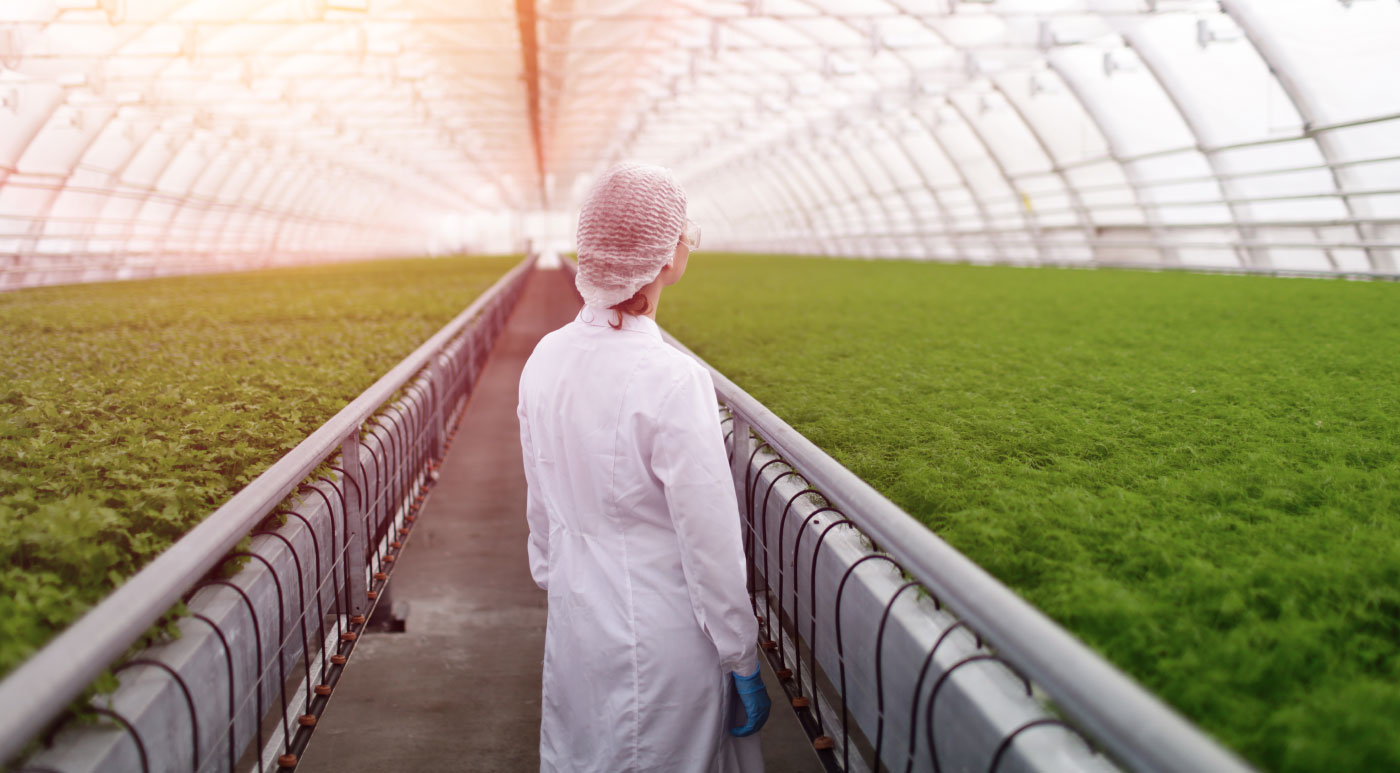
A public research university located in Lubbock, TX, Texas Tech University was first established as the Texas Technological College. With degrees in more than 150 courses of study throughout 13 colleges and 60 research centers and institutes, this school is one of the largest in the state of Texas—as well as one of the most prestigious.
Graduates of this university have gone on to rewarding careers in science, medicine, business, education, entertainment, and more. The university serves students from more than 100 countries and all 50 states and is known as a Hispanic-serving institution with more than 25% of its undergraduate population identifying as Hispanic.
Diversity, prestige, and academic rigor—what more could you want? If it’s affordability, then don’t worry—you’ll find that here, too. As the seventh-largest university in Texas, Texas Tech University is also one of the most affordable. It’s ranked as one of the top public schools by publications like the U.S. News & World Report and The Princeton Review. In addition, the Wall Street Journal has recognized Texas Tech as one of the top schools in terms of graduate desirability for job recruiters.
Your odds of finding a job are good—nearly 94% of all graduates either find a job or continue their education within just 180 days of graduation. You don’t have to worry about taking on astronomical student loan debt in order to land such a job, either. Tuition rates are low, starting at just $9,350 for out-of-state students. Plus, there are numerous financial aid opportunities available, like graduate assistantships.
The Department of Animal and Food Sciences offers some of the best majors in food science and technology. In addition to a master’s and a Ph.D. in animal science, the department also offers a cutting-edge Master of Science in food science that can be pursued with both thesis- and non-thesis options. This program will prepare you for a career in research and teaching as well as for work in the management of food enterprises.
You will be able to choose from more than 30 different graduate courses and to pursue your own unique program of study. Many students participate in an internship in lieu of a final thesis, allowing them to work in hands-on settings in various capacities of the food system, from food processing plants to packing companies, feedlots and ranches, and everything in between. You will also have the opportunity to publish your work in a professional journal.
As a student of the Department of Animal and Food Sciences, you’ll be able to work in modern facilities that are second to none. From field laboratories for beef cattle, goat, sheep, and swine in addition to research facilities for feed milling industries, you’ll also be able to work in the Health Sciences Center and the Center for Feed Industry Research and Education.
Ready to apply? You will need to submit an online application and submit unofficial copies of transcripts and test scores. A 3.0 minimum GPA is recommended.
#2. Iowa State University
Master of Science in Food Science and Technology

At Iowa State University, both faculty and students know to practice what they preach. The motto here is “Science with Practice,” and that makes a lot of sense, given the school’s commitment to undergraduate and graduate research and exploration.
A public land-grant research university, Iowa State is located in Ames, IA. It is not only the largest university in the state of Iowa but it’s also the third-largest in the Big 12 athletic conference. It is classified among R1: Doctoral Universities-Very High Research Activity, too.
Iowa State is unique in that it was coeducational from its very beginnings, right at its inception in 1858. It is a groundbreaking university that provides students of all backgrounds the opportunity to gain hands-on experience in their respective fields of study.
The Food Science and Technology program at Iowa State can be completed as a Master of Science, a Doctor of Philosophy and Technology, a graduate minor, or with additional graduate work in meat science offered as a co-major in animal science and food science and technology.
Regardless of the pathway you choose, this program will teach you how to apply scientific thinking and ethical reasoning to the discipline of food science. You can complete this program on its own or with a minor in an additional related topic like anthropology, education, biochemistry, microbiology, or toxicology.
You will complete an average of 20-30 credit hours of courses, including those in subjects like Advanced Food Processing, Advanced Food Analysis and Instrumentation, and Integrated Food Science.
Not only that, but this program is affordable, too. You will enjoy low tuition rates along with access to generous financial aid. Scholarships, fellowships, and other types of aid, such as the Professional Advancement Grant, are available to students.
You can even join a variety of professional societies and attend professional meetings with the assistance of department travel grants. Some of the most popular campus organizations you can join include the Institute of Food Technologists, the American Cereal Science Society, and Phi Tau Sigma.
This school is considered one of the most highly ranked public research universities in the United States, one of only 54 institutions in the country to have earned the Innovation and Economic Prosperity University designation by the Association of Public and Land-Grant Universities. Its agriculture and biological programs, in particular, are ranked as some of the top in the country by publications like the U.S. News & World Report, QS, and more.
Regardless of the accolades, is Iowa State University the right school for you? If so, and if you’re ready to apply, you’ll need to start by choosing from the thesis- or non-thesis option. You’ll need to submit an online application form but you can choose from three different deadlines to make things more convenient. You’ll also have to submit a resume, a nonrefundable application fee, official academic transcripts, three letters of recommendation, and GRE scores.
#3. University of Illinois at Urbana-Champaign
MS in Food Science and Flavor Chemistry
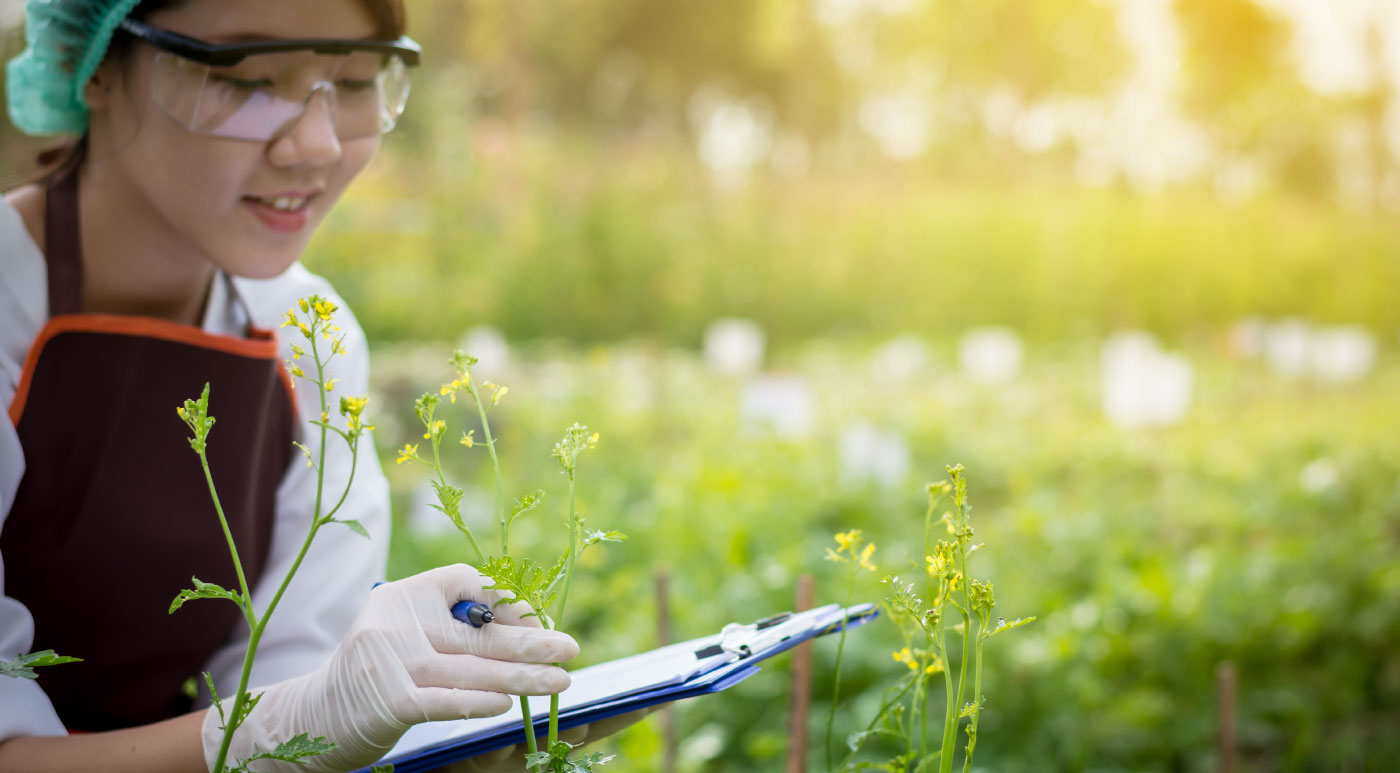
Located in the twin cities of Urbana and Champaign, the University of Illinois at Urbana-Champaign is considered a “Public Ivy” that is also classified among R1: Doctoral Universities-Very High Research Activity.
The school has a commitment to hands-on education, comprising 16 schools and colleges and offering more than 250 programs of study at the undergraduate and graduate levels. With a motto of “Learning & Labor,” this school knows what it takes to produce successful graduates—an experiential education from some of the best minds in the country paired with plenty of networking and career development opportunities.
The Department of Food Science and Human Nutrition at the University of Illinois at Urbana-Champaign offers a variety of degrees for students to choose from, including in-residence master’s and Ph.D. programs, a non-thesis graduate degree, an online master’s, and a professional science master’s. You can choose from majors in food science, human nutrition, and a combination degree.
The master’s in food science will allow you to focus on topics like food chemistry, sensory science, food processing and engineering, chemical and microbial food safety, and food microbiology. You will have the opportunity to study with faculty as they complete research in the genetic and physiological manipulation of bacteria, fermentation, and more.
You’ll have access to state-of-the-art technologies along with the use of acoustic ultrasound in processing. Because you’ll choose a faculty advisor based on your research area when you apply, you’ll also benefit from one-on-one mentorship for the duration of your studies.
Curious about the classes you will take? These will vary depending on your areas of interest and your professional goals. However, many students take classes such as Food Processing Engineering, Nutrition for Food Scientists, Advanced Food Microbiology, and Grantsmanship and Ethics. Plenty of students also complete a graduate internship experience or independent study courses.
With that kind of academic quality, you’d expect to pay an arm and a leg in order to attend this university. However, that’s not the case. This university has some of the lowest tuition and fees in the country, with rates starting at just $17,743 per year for Illinois residents. Of course, there are plenty of financial aid opportunities for you to explore, too. In addition to student loans and grants, many graduate students will qualify for assistantships as well.
Washington Monthly has repeatedly ranked this school as one of the best in the country based on its contribution to the public good, something that is measured based on a school’s research, social mobility, and promotion of public service. Because of this, you’ll be hard-pressed to find a food science and technology program that will prepare you quite as well for a life of service in food science like this one.
Is the Food Science and Flavor Chemistry major at the University of Illinois at Urbana-Champaign checking off all of your boxes? If so, you’ll want to consider the admissions requirements and start working on your application right away. You can submit an online application along with letters of recommendation, transcripts, and your resume for either fall or spring admissions deadlines.
#4. North Carolina State University at Raleigh
Master of Science in Food Science
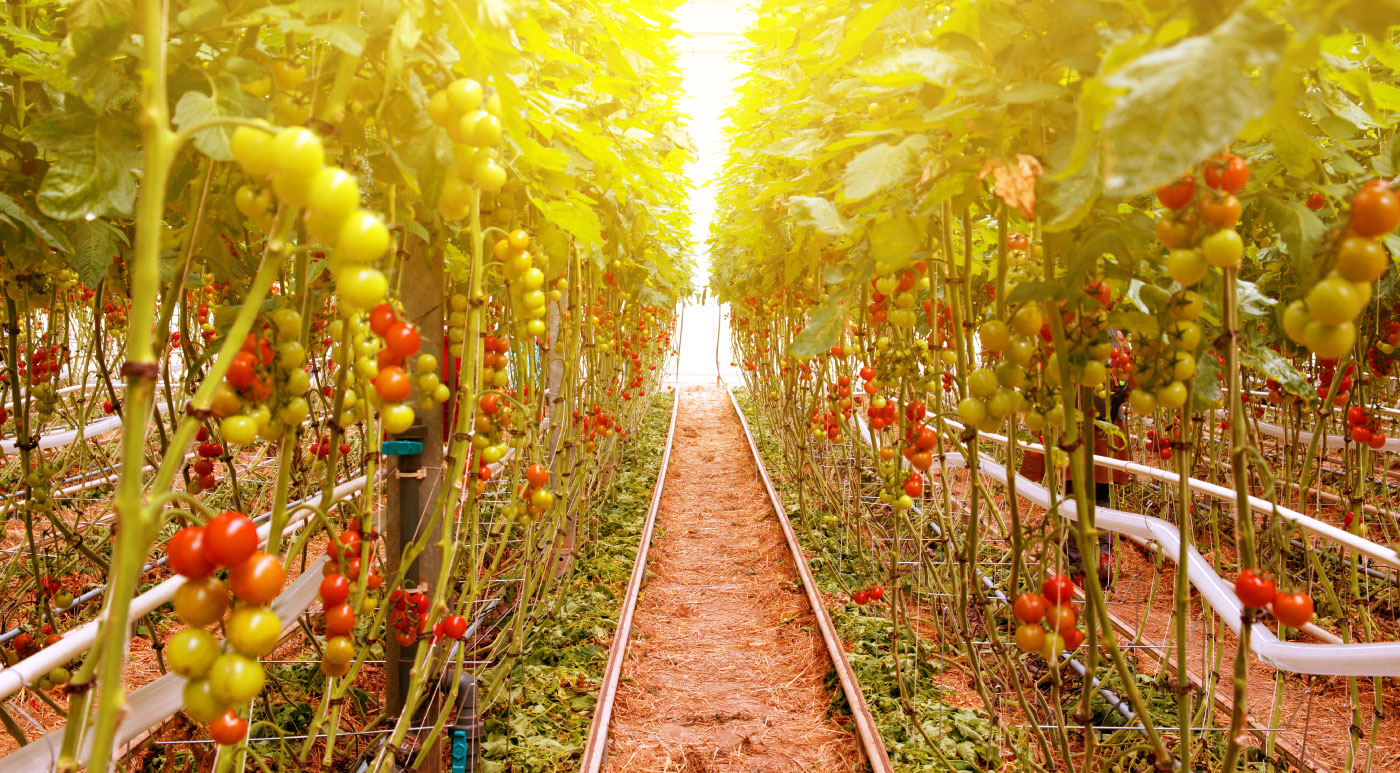
Founded in 1887, North Carolina State University at Raleigh is a public land-grant research university that forms one of the corners of the famed Research Triangle of the region, joining Duke University and the University of North Carolina at Chapel Hill to offer students exemplary research opportunities.
Here, the motto is “Think and Do,” a message that is carried forth in earnest in each and every one of the school’s more than 104 different master’s degrees.
The Master of Science in food science is one such program. In this degree, you’ll work with more than 100 different exceptional faculty and staff, studying among approximately 500 other students as you learn in small classes and enjoy a family-like atmosphere. The department has countless professional and industry relationships, along with active partnerships with national centers like the USDA, so you can learn by doing every single day.
The department has dozens of research facilities and units, enabling students to pursue topics about which they are passionate. You might work in facilities such as the Center for Advanced Processing and Packaging Studies, Plants for Human Health Institute, and the USDA-ARS foods science and market quality and handling research unit. The school even operates a variety of extension programs.
You’ll learn from faculty who are experts in their fields and join an alumni network that’s more than 2,500 strong. You can connect with NC State alumni and enjoy access to diverse positions in industry, healthcare, government, and more.
You will take core classes such as Thermal Processing of Foods, Exercise Nutrition, Sensory Analysis of Foods, Preharvest Food Safety, Food Industry Study Tour, and more. Both thesis and non-thesis options are available.
This degree will prepare you for work in unique fields, equipping you with the skills you need to pursue careers like food safety compliance officer, quality control technician, food auditor, or researcher. You can take courses on-campus as well as online so that you don’t have to choose convenience over quality.
The degrees and courses online are exactly the same as those offered on-campus (and taught by the same faculty) so that you can save money by studying while still employed. You don’t have to give up your day job to earn a degree in food science!
This school is known for its affordability. It is ranked as one of the best value schools by U.S. News & World Report as well as one of the most innovative. You’ll be able to apply for countless fellowships and other awards to help foot the bill for your graduate expenses, too.
Think you have what it takes to apply? North Carolina State University is considered “more selective,” accepting only about a quarter of its graduate school applications. The school has four application deadlines each year, so you can apply when it is most convenient for you. No GRE test scores are required for this on-campus program.
#5. University of Nebraska-Lincoln
MS in Food Science and Technology
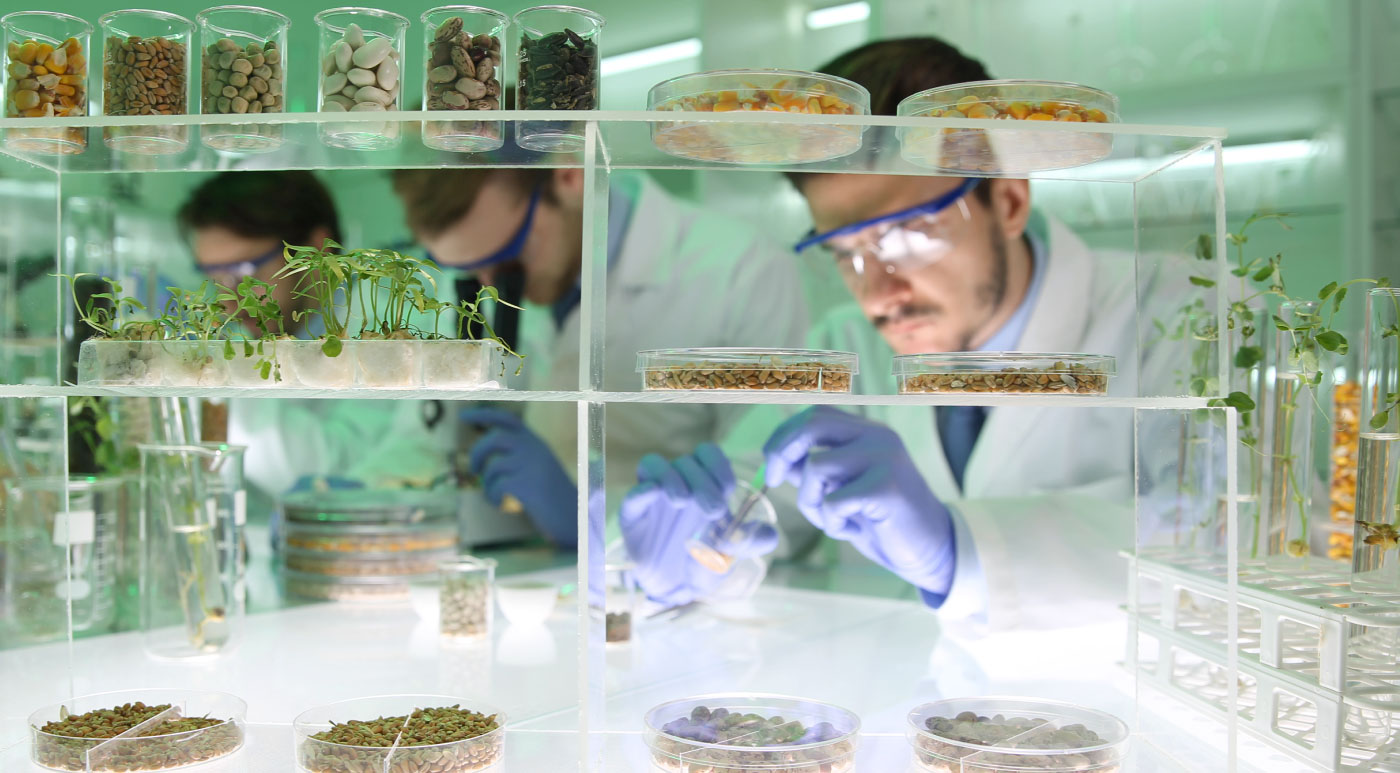
A public land-grant research university, the University of Nebraska-Lincoln has roots that date back to just after the state’s inception. Despite its humble origins, the school now possesses a reputation for high-quality education of the highest caliber.
Here, you will find hundreds of programs that conduct research in fields such as agricultural and food sciences. The university is classified as being among R1: Doctoral Universities- Very High Research Activity. In 2018 alone, this institution spent more than $308 million on research and development. It’s ranked as one of the top schools in the country by U.S. News & World Report, Forbes, Washington Monthly, and other publications.
The Department of Food Science and Technology at the University of Nebraska-Lincoln offers a Master of Science in food science and technology that consists of 30 to 36 credit hours of study. There are multiple options available that will allow you to fully customize your degree as you live and learn in the Food Innovation Center on campus.
At this center, you’ll have access to state-of-the-art classrooms, wet-dry lab research spaces, teaching labs, clinical facilities, pilot plants, and sensory labs. As a student in this program, you will also work closely with the Food Processing Center, the Nebraska Food for Health Center, the UNL Dairy Store, and the Food Allergy Research and Resource Program.
While you’ll be able to explore any area of research as a student in this program, the main areas of research for the department include food safety, preservation and transformation, food allergens, and digestive wellness. Because of this, the degree is an excellent program for individuals who are interested in work in major research centers, food companies, government centers, and other related fields. It even has an optional specialization in bioinformatics!
This degree is an excellent starting point for candidates who are interested in Ph.D. programs. The department offers two of its own, with major options including food science and technology and nutrition. You can even tack on an optional certificate in food safety and defense, if you choose!
There are three curricular options for students to choose from. One is a thesis program, which will allow you to choose a research area of interest. Another option is to complete a minor instead of a thesis. You can also complete additional courses rather than a thesis, taking extra advanced courses in your area of interest.
An affordable degree, the food science major features tuition that averages $341 per credit hour for resident students. You can apply for a variety of financial aid opportunities, including scholarships and assistantships, if you choose, too.
To apply to the Food Science and Technology program at the University of Nebraska-Lincoln, you’ll want to make sure your credentials are top-notch. This school is rated as being “more selective” by U.S. News & World Report. You will need to provide the recommendation letters, a set of transcripts, and a personal statement. A minimum GPA of 3.0 is also required.
#6. University of Maine
M.S. in Food Science and Human Nutrition
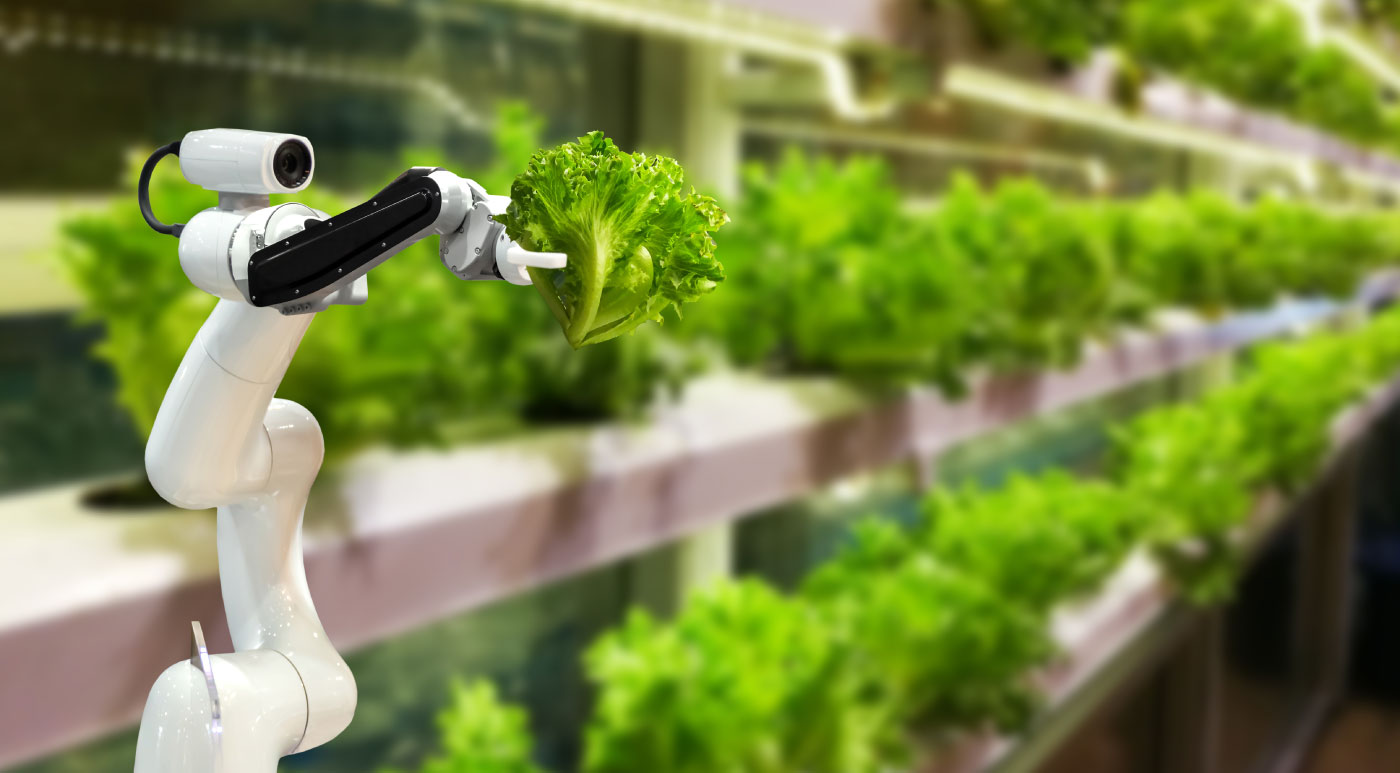
A land-grant research university, the University of Maine is located in scenic Orono, ME. Orono is known for its picturesque location on the banks of the Stillwater and Penobscot rivers, as well as its rich and diverse history.
Of course, the University of Maine is noteworthy in its own regard. It’s one of just a few land, sea, and space grant institutions in the entire country and is classified among R2: Doctoral Universities-High Research Activity. It offers more than 90 different programs of study, many of which are nationally ranked by U.S. News & World Report.
The Master of Science in food science and human nutrition is one of the two popular programs offered by the School of Food and Agriculture at the University of Maine, with the other being a Ph.D. in food and nutrition sciences.
Through this program, you’ll be able to explore areas of research with faculty such as nutrition behavior change, berry bioactives, food processing and preservation, seafood quality, product development, and sensory evaluation, just to name a few.
The master’s degree comes with three potential tracks: an internship track in dietetics, a food science and human nutrition track, and an online combined human nutrition and food technology track. Within these tracks, there are thesis and non-thesis options to choose from.
An affordable program, the Master of Science in food science and human nutrition at the University of Maine has low tuition rates. In addition, you’ll be able to apply for assistantships and fellowships (provided that you choose to study on campus). Most students can complete their degrees in less than two years, but there are also accelerated BS+MS tracks for students who wish to complete a full undergraduate and graduate combined course of study in just five years.
The accelerated program at the University of Maine, also known as the “double-up” program, is a great pathway for students who want to receive a quality education without spending a ton of money. Since you can apply three or more courses toward both undergraduate and graduate requirements, you can save both time and money.
You’ll take around 30 credit hours of study before you graduate, though the exact courses and number of credits you take will vary depending on the track you select. Some of the courses you take may cover topics such as Fermented Foods and Probiotics, Sensory Evaluation, Infectious Diseases and Food Safety – From Plants to Humans, and Marine Science Seminar.
Once you’re ready to apply, you’ll need to start by submitting an online or paper application. You will also need to provide an official transcript from every institution you have attended along with a nonrefundable application fee. Three letters of recommendation and GRE scores are required, too.
#7. University of Idaho
Food Science, M.S.

With a motto of “A Legacy of Leading,” it should come as no surprise that the University of Idaho is one of the country’s leading institutions when it comes to master’s degrees in food science and technology.
A public land-grant institution, this university in Moscow, ID is the top school in the Idaho Space Grant Consortium. It offers more than 142 degree programs at the undergraduate and graduate levels and is known for its extracurriculars as well as its academics. In fact, this school is home to the Idaho Vandals, athletic teams that compete in the NCAA Division I athletics conferences.
The Master of Science in food science at the University of Idaho focuses on food “before it hits the marketplace.” You’ll work to create new foods, improve food safety and quality, and to develop more efficient food processes.
The degree will also provide you with the advanced technical and research skills you need to be successful in food innovation. From studying the microbiology and chemistry of various food products to designing and conducting your own experiments, this program is incredibly hands-on.
The program is the ideal fit for students who want to lead research projects in the lab as well as those who already hold undergraduate degrees in fields like microbiology, chemistry, and food science. After completing your studies, you might go on to a career as a product developer, research scientist, food safety specialist, or food plant operations manager.
There are plenty of ways for you to get involved on campus. You can get hands-on experience through resources and facilities right on campus and apply for research or teaching assistantships. You can enter into competitions, publishing your own research in the process, or you can participate in grant-funded research projects. Many students choose to intern at companies like Kraft Foods, Land O’Lakes, J.R. Simplot Co., and other big names.
This degree is incredibly affordable, with low tuition rates (just $4152 per semester for in-state students!) that are further offset by extensive financial aid. More than 400 scholarships are awarded exclusively to the College of Agricultural and Life Sciences (the department in which the food sciences major is housed) each year. These awards are typically based on GPA and similar qualifications.
When it’s time to apply, you’ll need to submit copies of your undergraduate transcripts. Applicants are encouraged to have completed undergraduate programs in majors like microbiology, chemistry, or food science. Individuals who like research and lab work are especially encouraged to apply.
You will need to have a minimum GPA of 3.0. GRE scores are also required. You can apply for admission in the fall, spring, or summer semester, choosing from both thesis- and non-thesis options. You will need to submit supporting documents like letters of recommendation, transcripts, a writing sample, a statement of purpose, and a resume, too.
#8. Kansas State University
Food Science Master’s Degree
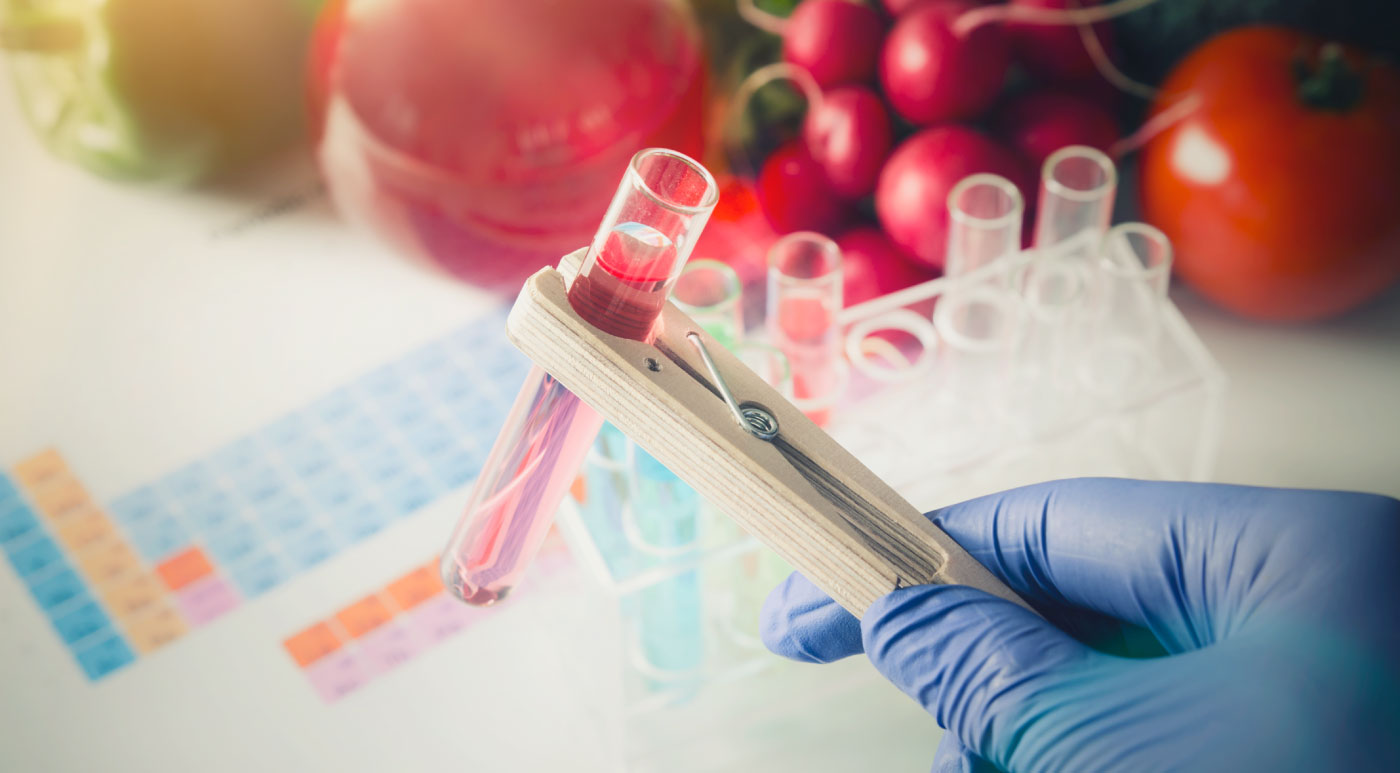
Kansas State University is a public land-grant institution located in Manhattan, KS. Although Manhattan, KS doesn’t have all the glitz and glamour of its New York counterpart, Kansas State University has plenty to offer prospective students regardless—especially those who are interested in studying food science and technology.
This university ranks nationally among public universities in its output of Rhodes, Goldwater, Truman, Marshall, and Udall scholars, a clear indicator of its high academic quality. It’s also highly ranked by publications like Washington Monthly, U.S. News & World Report, and more.
The food science master’s degree offers a variety of research opportunities, with emphasis areas including food chemistry, food microbiology, food safety, food processing, food engineering, and sensory analysis. You can work with several different food commodities including dairy, cereal, fruits and vegetables, and meats and poultry.
It is available both online as well as on-campus. Regardless of the format you choose, you will be able to take classes such as Food Chemistry, Masters Research in Food Science, Food Analysis, Flavor Chemistry, Quality Assurance of Food Products, Food Protection and Defense-Essential Concepts, Fundamentals of Food Processing, and Food Microbiology.
You may also want to take on an optional food safety and defense certificate. This certificate will prepare you to work directly in the food industry, providing you with the skills you need to work to protect the human food supply. It includes 12 credit hours of core classes such as Food Toxicants; Advanced Food Microbiology and Biotechnology; and Price, Income, and Trade Policies in Agriculture.
This degree is incredibly affordable. Because you can choose between classes that are offered face-to-face, online, and in a hybrid setting, you can customize your studies to meet your budget and career goals. You’ll pay right around $312.50 per credit hour and have access to generous financial aid opportunities. Both research and teaching assistantships are available on a limited basis, both of which offer generous tuition discounts and ample hands-on experience. There are competitive research stipends available too.
Of course, as a student in this program, you will be able to enhance your experience by participating in internships, research opportunities, and extracurriculars. There are plenty of resources available to undergraduate and graduate students at Kansas State, too, such as career development assistance, tutoring, a writing center, and more.
To be eligible for admission, you will need to submit an online application. GRE scores are not required. Instead, you’ll submit a one to two page statement of objectives, official transcripts, and three letters of recommendation. A bachelor’s degree with a minimum GPA of 3.0 or higher is required, as are prerequisite courses in physics, biology, calculus, biochemistry, and statistics.
#9. Michigan State University
Food Science Graduate Program – Master’s Degree
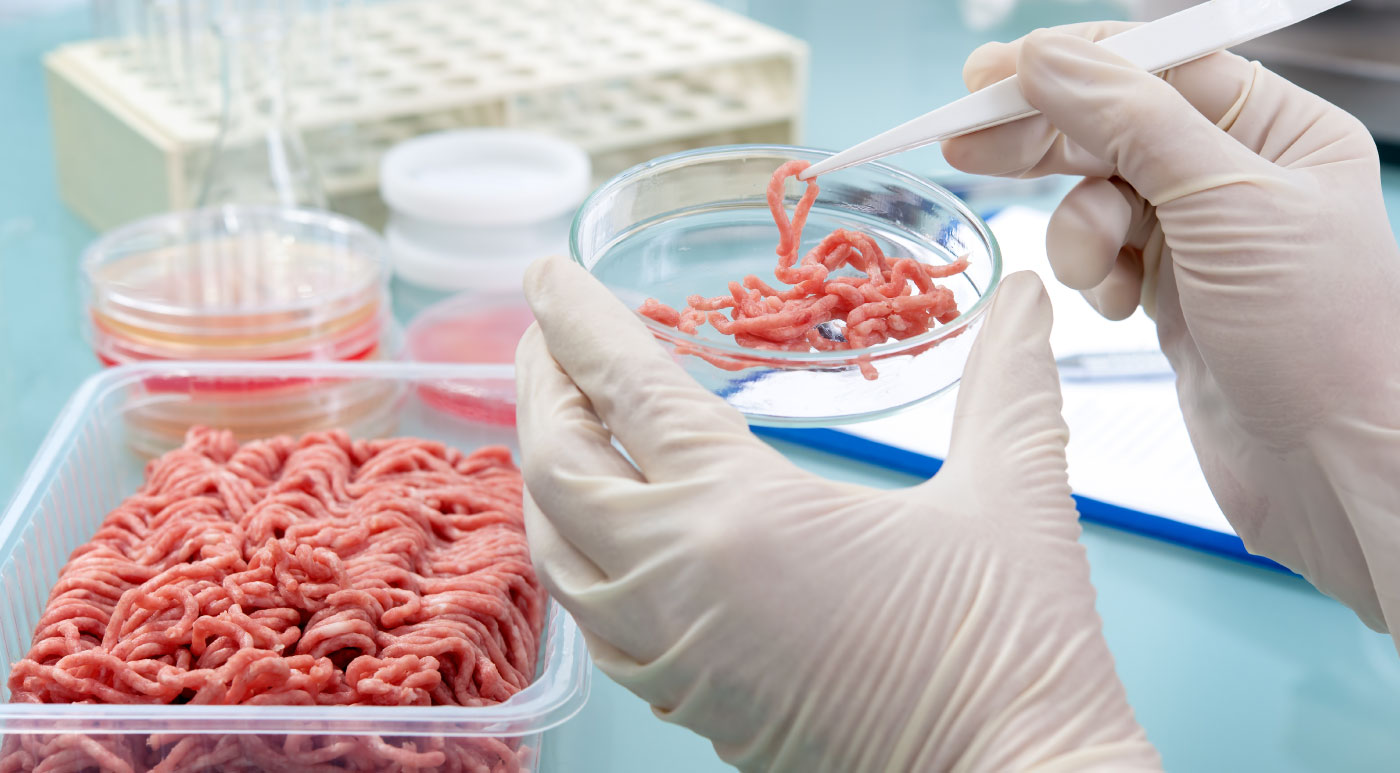
Michigan State University was first founded as the Agricultural College of the State of Michigan. One of the nation’s first universities dedicated specifically to teaching scientific agriculture, the school is now a coeducational university that is one of the largest in the country. Despite offering one of the best agriculture and food science programs, Michigan State is also known for offering a wide array of other programs as well.
It is also known for its excellent graduate programs. Many of these are ranked among the best in the country. It is classified among R1: Doctoral Universities-Very High Research Activity and has more than 634,000 living alumni around the world—two facts that are incredibly important for aspiring food science majors to be aware of. Because you’ll be able to conduct plenty of hands-on research and work with industry partners while you are enrolled, you’ll have no problem finding a job once you graduate.
The food science graduate program is a Master of Science that provides plenty of opportunities for research. You’ll be able to carry out research in food safety and toxicology or in food processing and quality enhancement. You’ll complete around 30 credit hours of study, with both thesis and non-thesis (coursework-only) options available.
This degree, like many of the others we’ve reviewed so far, is extremely affordable. Tuition rates are low and costs are offset even further by generous department scholarships. These scholarships are available to enrolled graduate students with applications available each spring.
As a student in this program, you might apply for awards such as the LeRoy and Dorothy Dugan Food Chemistry Fellowship Endowment, the J. Robert Brunne Fund for Food Science and Human Nutrition Research, or the Dr. Lawrence E. and Violet I. Dawson Professional Development Endowment Fund. Many of these awards include assistantships or fellowships with work experience as a required component, allowing you to gain extensive hands-on experience while you are enrolled.
Of course, all students, regardless of financial standing or research interests, are encouraged to join one of the many professional organizations that partner with Michigan State. As a student member of the American Society for Nutrition, the Institute of Food Technologists, or the Academy of Nutrition and Dietetics, you can explore professional development opportunities like conferences and travel and enjoy access to numerous scholarship awards.
To apply, you will need to have a background in quantitative and organic chemistry, biochemistry, biological and agricultural sciences, nutrition, and mathematics. You will need to have a minimum 3.0 GPA in undergraduate work and have competitive GRE scores (at least in the 50th percentile). Your letters of recommendation and work experience will also weigh heavily in the application review process.
When you apply, plan to submit your transcripts, GRE scores, and a statement of purpose. This statement should include your past, present, and future experiences and plans in the field of food science. You can also include a resume or CV. Letters of recommendation are also required.
#10. Purdue University
Food Science Graduate Program
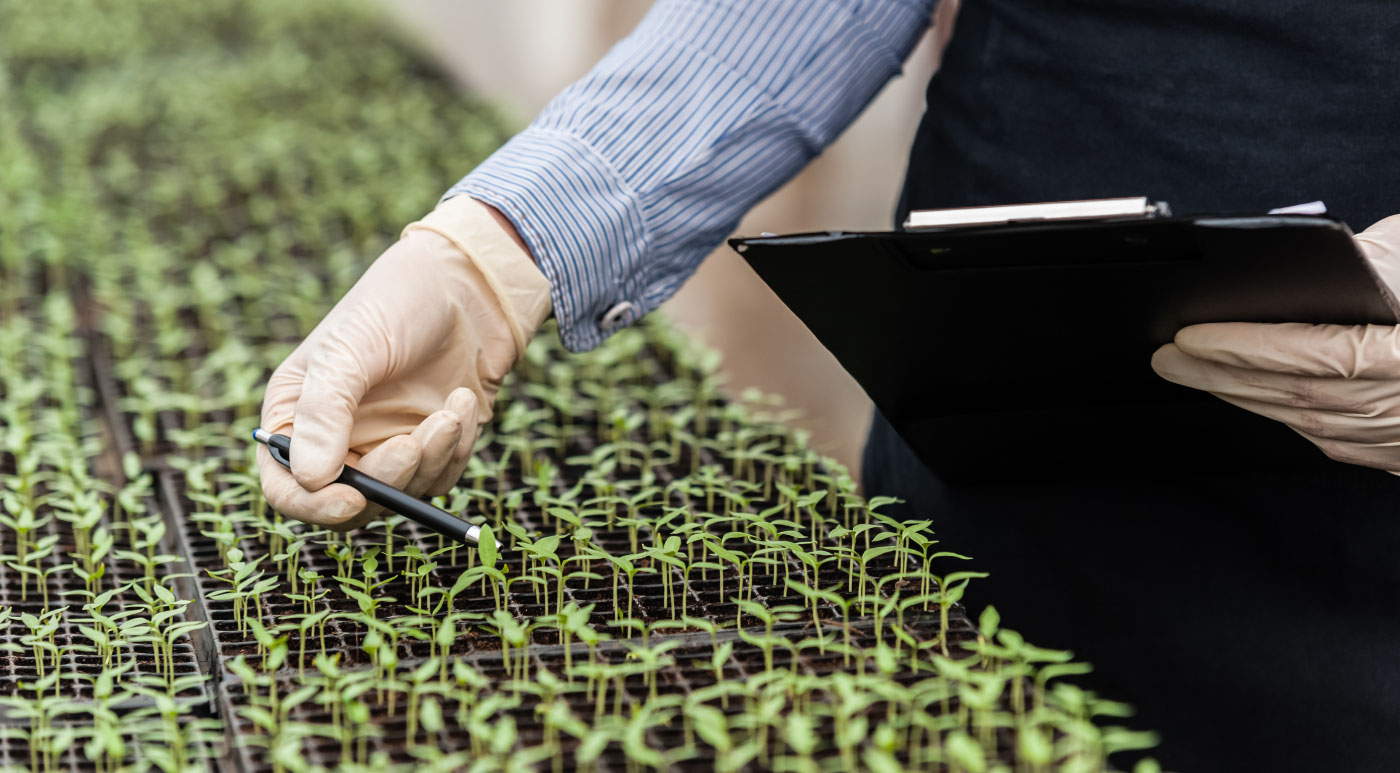
Purdue University is yet another school on this list with somewhat humble beginnings. It was first founded in 1869 with the earliest classes enrolling just 39 students and employing six instructors.
Today, Purdue has more than 269 majors for undergraduates and graduates to choose from. It also has 18 intercollegiate sports teams and nearly 1000 student organizations for you to participate in as a student.
As a food science major at Purdue, you’ll find everything you need—and more—within this program’s innovative curriculum. You’ll focus on four signature areas: food chemistry, structure, and function; foods for health; food processing and technology development; and food safety and microbiology. You’ll be able to conduct research in each of these innovative areas as you work closely with faculty mentors.
Alumni of this program work in all kinds of careers in industry, government, and academia. You’ll be supported in your journey through valuable networking opportunities. The department has extensive career placement resources along with industry partnerships with major players like Cargill, Hershey, Kraft, General Mills, Kellogg’s, and more.
The department has an impressive reputation and outstanding resources. You’ll be able to work in the Nelson Hall of Food Science, a facility that is equipped with a pilot laboratory and a sensory laboratory along with the Whistler Center for Carbohydrate Research and the International Food Technology Center. The department also has relationships with industries and schools in agricultural and biological engineering, nutrition, industrial pharmacy, and even horticulture.
Courses are taught by award-winning faculty and there are opportunities for international and interdisciplinary collaborations. You’ll be able to take on leadership positions and network with companies as you complete your courses. Classes include Nutritional Sciences, Food Chemistry Statistics, and Responsible Conduct in Research. In total, you’ll complete at least 30 credit hours of study.
Many students extend their studies even further, choosing to participate in extension outreach opportunities. You can work with programs such as Hops and Brewing Analysis, Food Preservation, Retail Food Safety, Safe Produce Indiana, and the ServSafe Training Program, just to name a few.
This program is highly competitive, but if you’re chosen for admission, you’re in luck—it is also extremely affordable. Funding is provided to all graduate students who are admitted. Therefore, only top candidates are accepted. It is a small program with only 75 graduate students between the Master of Science and the Ph.D. program.
If you think Purdue University is the right school for you, you will need to determine whether you have the skills and background necessary for admission. No GRE is required, but you will need to have a GPA of at least 3.0 on a 4.0 scale. When you apply, you will need to submit an online application, a resume and statement of purpose, and three letters of recommendation.
OTHER NOTABLE PROGRAMS
#11. Mississippi State University
Location: Mississippi State, MS
Degree: Master of Science in Food Science, Nutrition and Health Promotion
Net Price: $8,650
#12. Virginia Polytechnic Institute and State University
Location: Blacksburg, VA
Degree: M.S. Life Sciences
Net Price: $15,510
#13. Cornell University
Location: Ithaca, NY
Degree: MS in Food Science Concentration
Net Price: $29,584
#14. Texas Woman’s University
Location: Denton, TX
Degree: MS in Food Science and Flavor Chemistry
Net Price: $7,336
#15. University of Wisconsin-Madison
Location: Madison, WI
Degree: Food Science M.S.
Net Price: $12,010
#16. Washington State University
Location: Pullman, WA
Degree: Master of Science in Food Science
Net Price: $12,802
IF YOU ENJOYED THAT THEN CHECK OUT OUR ARTICLES ON THE BEST AFFORDABLE ONLINE MASTER’S IN MARKETING MANAGEMENT & THE BEST ONLINE MASTER’S IN EDUCATION!
